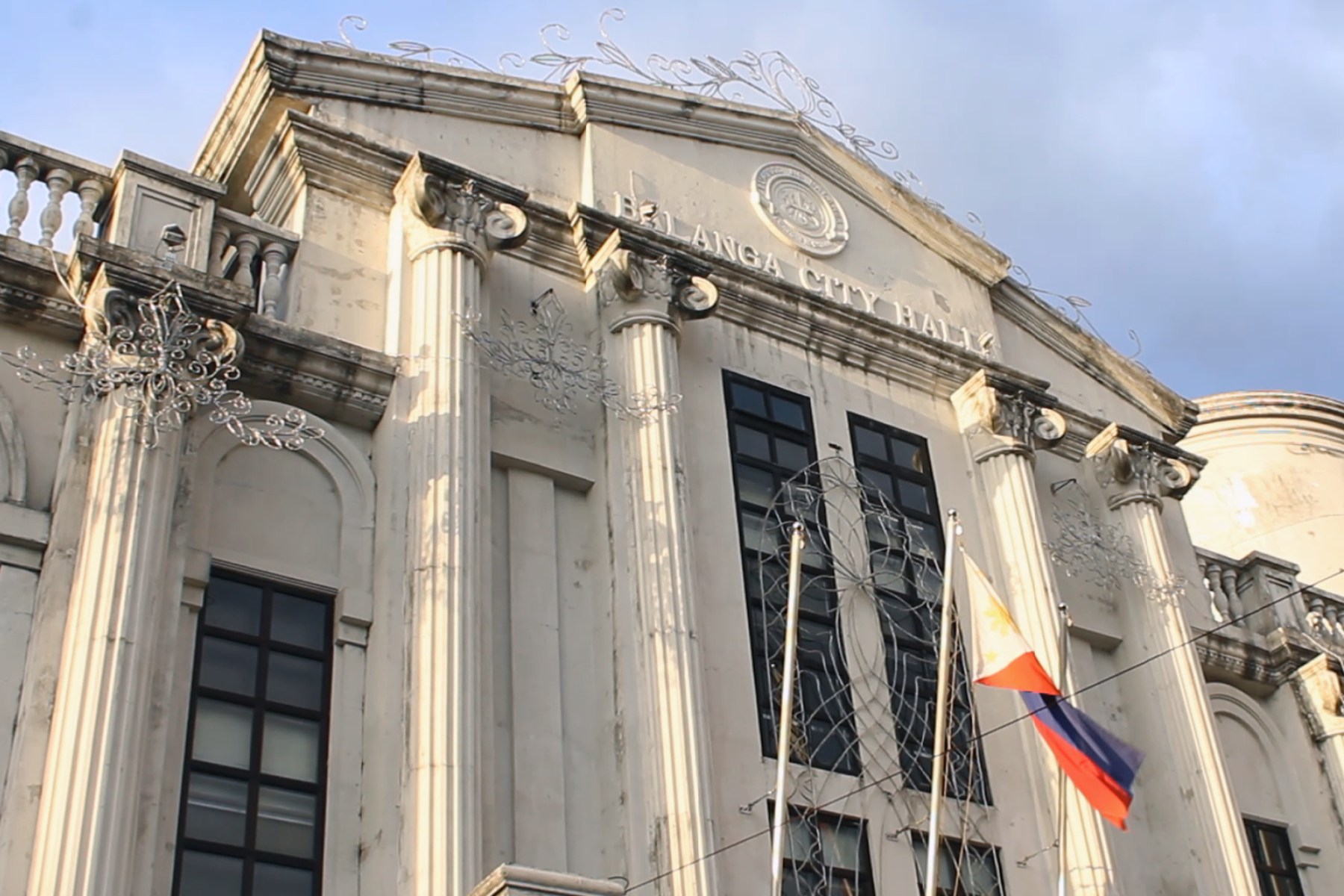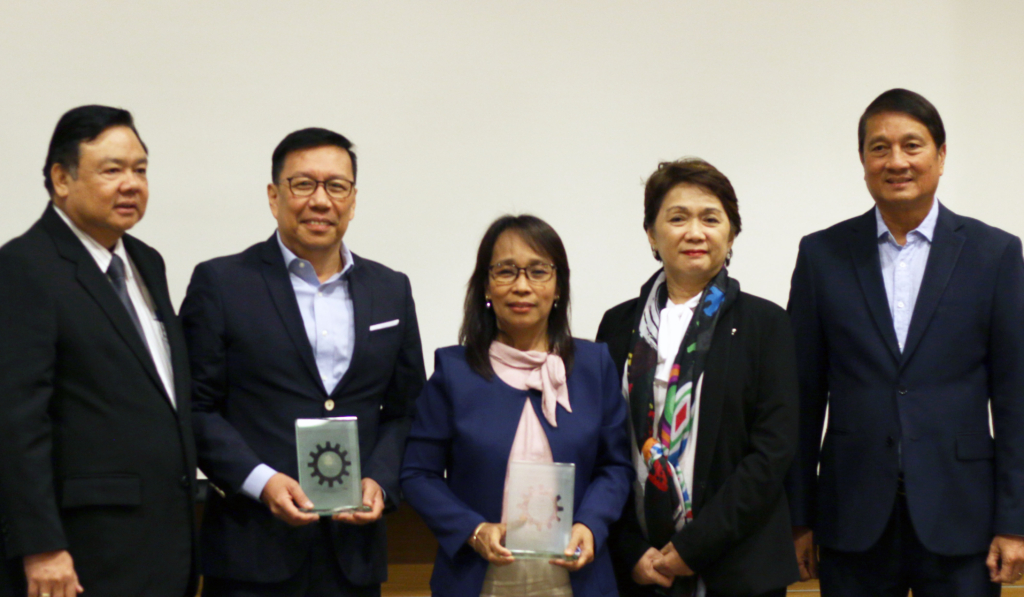The prospect of change is often accompanied by challenges. It was not any different for the city of Balanga, Bataan. When ISA tapped the local government to undergo its reform program in 2008, department heads were urged to get to know the Performance Governance System (PGS). This was understandably met with mixed reactions.
Balanga’s PGS Core Team Chair Myrna Roman recalled she was doubtful at the start. Roman was unsure if the PGS was the answer to common issues in local governance, although she was excited for the city’s potential. “Ito ‘yung chance to realize my dream of touching a lot of lives. Na, bago man lang maisip mag-get out of the service, may magawa para sa bayan.” (This was my chance to realize my dream of touching a lot of lives. To do something for the country before leaving the service.)
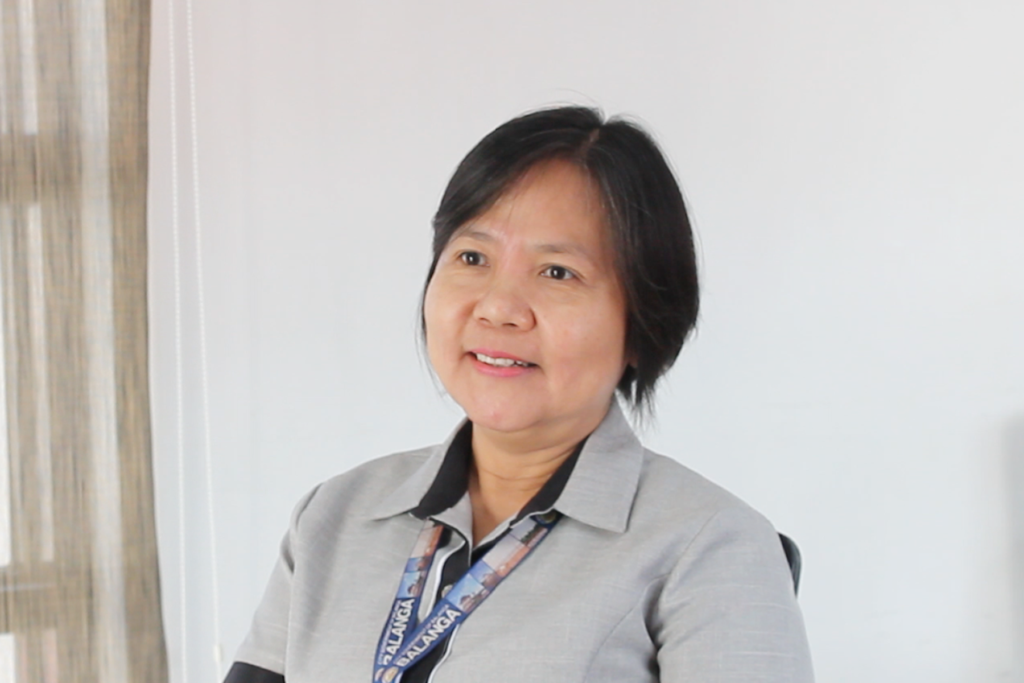
Officer-in-Charge of the Office of Strategy Management (OSM) Elsa Ilagan recounts city employees’ initial skepticisms and eventual buy-in with the PGS.
Roman said other employees were also skeptical since Balanga had already been doing well before the PGS. “Sabi nila hindi narin kailangan kase talaga namang maganda yung pamamahala during that time pa.” (They said we do not need it because the leadership was good even during that time.)
Officer-in-Charge of the Office of Strategy Management (OSM) Elsa Ilagan points out that employees were concerned about what working beyond their mandates would entail. “Before PGS, sanay ang mga tao syempre kung ano lang yung task nila. Kung ano lang talaga yung function na nakasanayan nilang gawin, yun lang gagawin nila.” (Before PGS, people were used to just doing their tasks. They worked according to a routine.)
Setting standards
As Balanga progressed with the PGS, the employees saw how beneficial it could be in the long run. With ISA’s help, Balanga formulated initiatives to achieve its vision to become a university town by 2020—the emerging hub for tech businesses in the Philippines. The city revisited its existing codes and policies, and those within city hall soon realized that even with a good track record, there were still things left to fix. Some of the city’s initiatives included the rehabilitation of the Plaza Mayor, the construction of the Balanga Nature and Wetland Park, and the reinvention of the Balanga Public Market.
Once a limited space near the Balanga City Hall, the Plaza Mayor was expanded to feature more establishments that would encourage families to spend time together. The city also developed the Balanga Nature and Wetland Park, in cooperation with the Wild Bird Club of the Philippines, to create a safe environment for migratory birds to flock to the area.
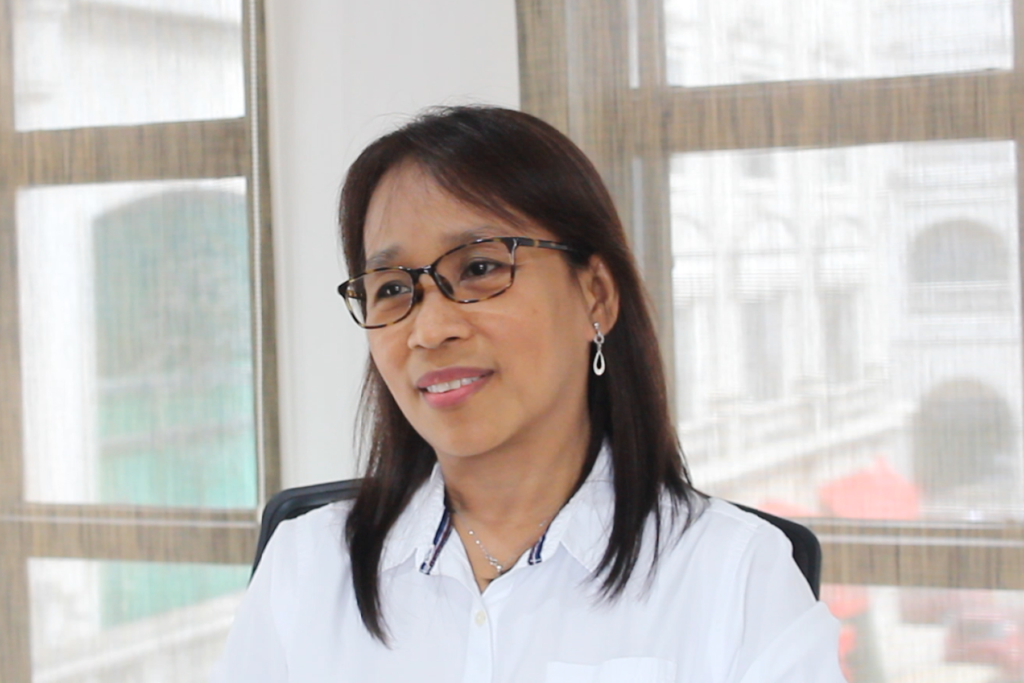
Performance Governance System (PGS) Core Team Chair Myrna Roman describes the city’s initiatives focused on creating a better environment for its citizens.
In its long journey to completing PGS, one of Balanga’s greatest feats has been its rehabilitation of the Public Market. According to Balanga City Administrator Rodolfo de Mesa, the Balanga Public Market was once a traditional market that spent, more than earned, money for the city. This pushed Balanga to revisit its market code, update its rental system, and develop a sense of community within the establishment. “The standards set for the PGS are also the standards set in the market. Discipline was really embedded.”
The city’s fair and orderly idea was to assign stalls to vendors through draw-lots to avoid bias issues. Considered a safe space for citizens, the Public Market has become a prime example of what it means to live and breathe good governance—one which other LGUs have taken notice of and looked into replicating. An activity that used to be detrimental to the city, is now one of the greatest boosts to its economy.
Redefining education
Since education was the centerpiece of its vision, the city set up learning hubs to provide citizens learning opportunities beyond the classroom. Partnering with the Multi-Sector Governance Coalition (MSGC) and barangays, the city took on the challenge of developing “barangay learning hubs”. The MSGC, a group of external stakeholders helping the city achieve its vision, took care of securing donations for the hubs. The barangay took charge of security and provision, as well as regular maintenance of the equipment. The city was then responsible for taking care of rehabilitating the hubs. De Mesa says these “classrooms” serve as conduits to school computer labs. They are facilitated by Information Technology graduates. This way, students have an extra venue to research school requirements as well as access to relevant materials and programs.
Due to the success of the barangay learning hubs, de Mesa says the city and MSGC then partnered with local schools to develop school learning hubs. These serve as augmented versions of the schools’ computer labs. “Everybody should have at least a one-hour computer session in school.”
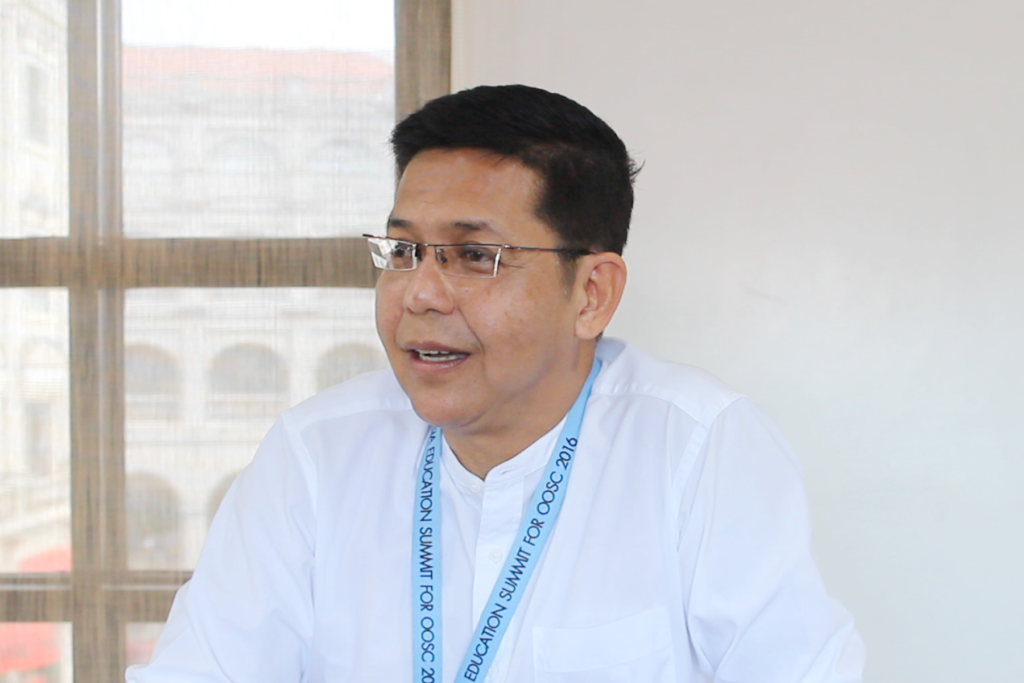
City Administrator Rodolfo de Mesa talks about the city’s success in establishing barangay learning hubs.
The city reaped awards from running these learning hubs. De Mesa says the United Nations Educational, Scientific and Cultural Organization (UNESCO) even chose Balanga as one of the 12 learning cities of the world. “It’s a big boost and an encouragement to each and every one of us, to people in the community who really value education.”
The city also adopted the Department of Science and Technology-Information and Communication Technology’s (DOST-ICTO) Technology for Economic Development (Tech4ED) project to address the learning divide between urban and rural areas, as well as improve living conditions through ICT-oriented education. The project specifically provides opportunities for out-of-school youths (eEduSkills); potential entrepreneurs like women in the community, people with disabilities (PWDs), senior citizens, among others (eAssist); market users who aim for a wider reach (mMarketPlace and eAssess); citizens interested in farm technology (mAgri); and citizens in need of government assistance (eGovServ). In the process of setting up Tech4ED, the city also turned learning hubs into Tech4ED centers.
Like other LGUs that underwent the PGS, it was a long process and took time to get used to. At first, members of the MSGC were wary of the responsibility because they had to come up with the projects and handle the funding themselves. But now, llagan says the coalition willingly helps the city and creates projects like the learning hubs.
The OSM, the team responsible for keeping track of the city’s progress and making sure the strategy was intact, also encountered the usual problem with staffing, since the office was not part of the original structure of city hall. Through both ISA and the city’s efforts, members of the OSM are on their way to gaining permanent positions.
Roman notes that it was good principles that helped Balanga conquer its challenges. For the city, it was not just a simple transformation. “Ang tingin ko kase sa PGS, hindi lang siya change of mind, but more so change of heart. Ito ‘yung isang pagbabago na hindi mo ico-convince ‘yung tao kase naglalaban kayo sa what’s right or wrong, kundi kung ano yung naaayon sa iyong konsensya na pagbabago para sa bayan.” (I think of the PGS as not just a change of mind, but more so a change of heart. This is the kind of change that does not need arguing about what is right or wrong, but about how your conscience defines change for the country.)
Ilagan sees the change in the employees’ mindset, which she describes as voluntarily going beyond business as usual. Their efforts showed as Balanga became an Island of Good Governance in 2015—a recognition bestowed by ISA to public institutions that showcase exemplary transformation through the PGS—and a Palladium Balanced Scorecard Hall of Fame for Executing Strategy™ awardee in 2017, an award given to organizations around the world with commendable efforts in creating positive impact.
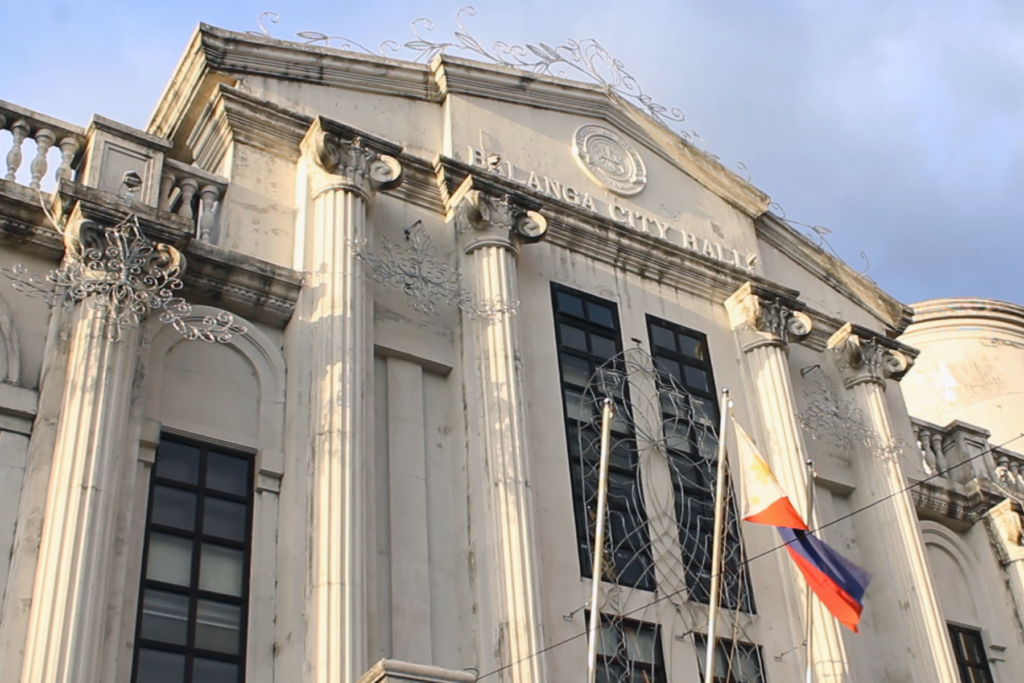
Balanga City Hall
The city is now considered a PGS graduate, but Ilagan knows the work continues. “Tuluy-tuloy ang lahat ng nakasanayan sa PGS na masigurado namin na, after Institutionalization, nandun parin ang PGS. Nandun parin mga strategies namin at patuloy parin pag-achieve sa vision. Ayaw namin na bigla na lang mawawala yung passion namin sa PGS.” (We will continue what PGS taught us to do so that now, even after Institutionalization, the system is still in place. Our strategies will still be there and we should continue to work to achieve our vision. We do not want to lose our passion for the PGS.)
“Even if we change the system, if the hearts and minds of the people are not committed with the change that you want to have in your community, I think change will not be a reality. It’s personal development down to social transformation because it will start from us.” De Mesa believes that even with the help PGS provided, it is always going to be the people who have to make it work and sustain what they started. “We were able to make it because we started with our employees, with the PGS guiding us in our journey. The journey with the PGS, is really a journey to excellence.”

